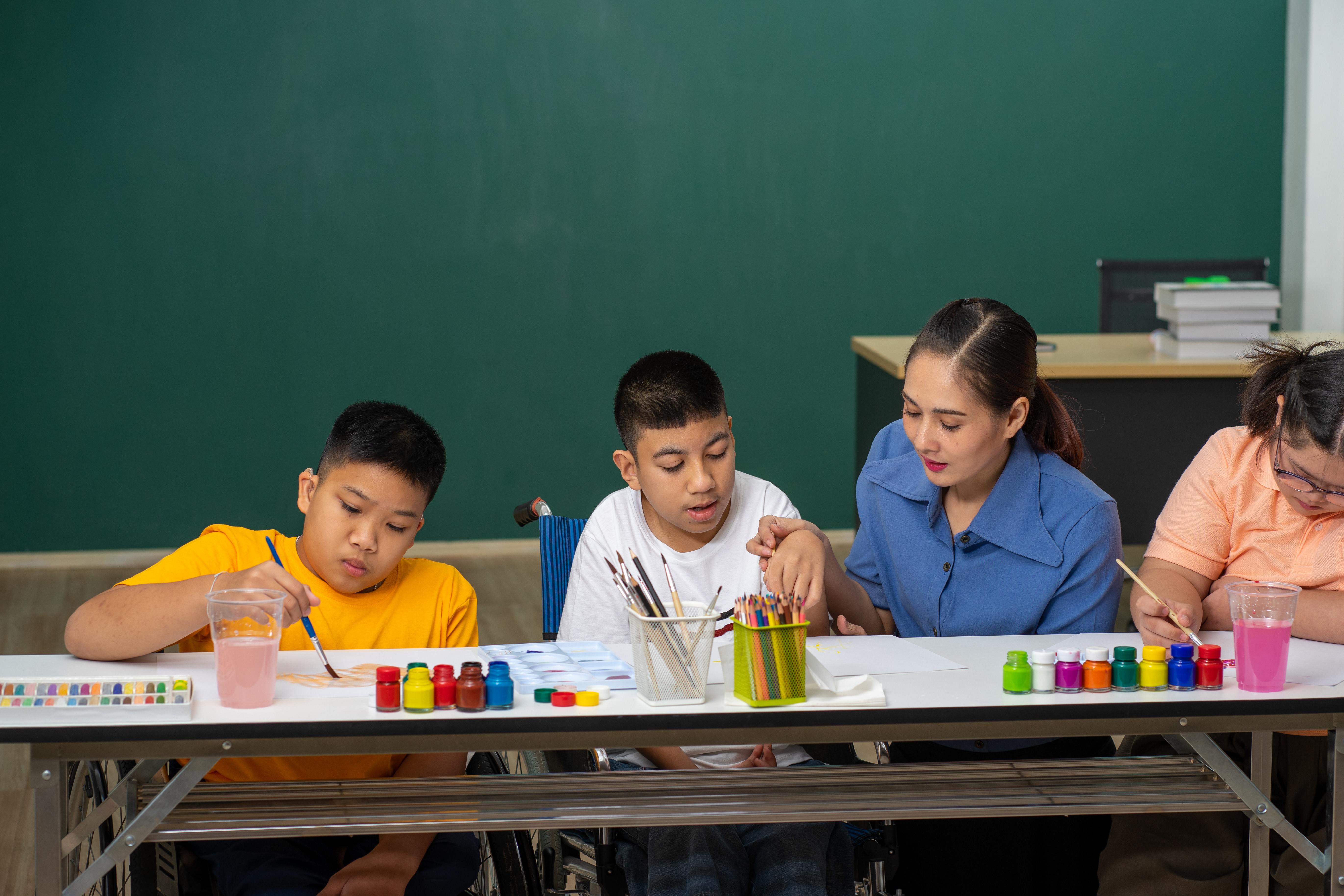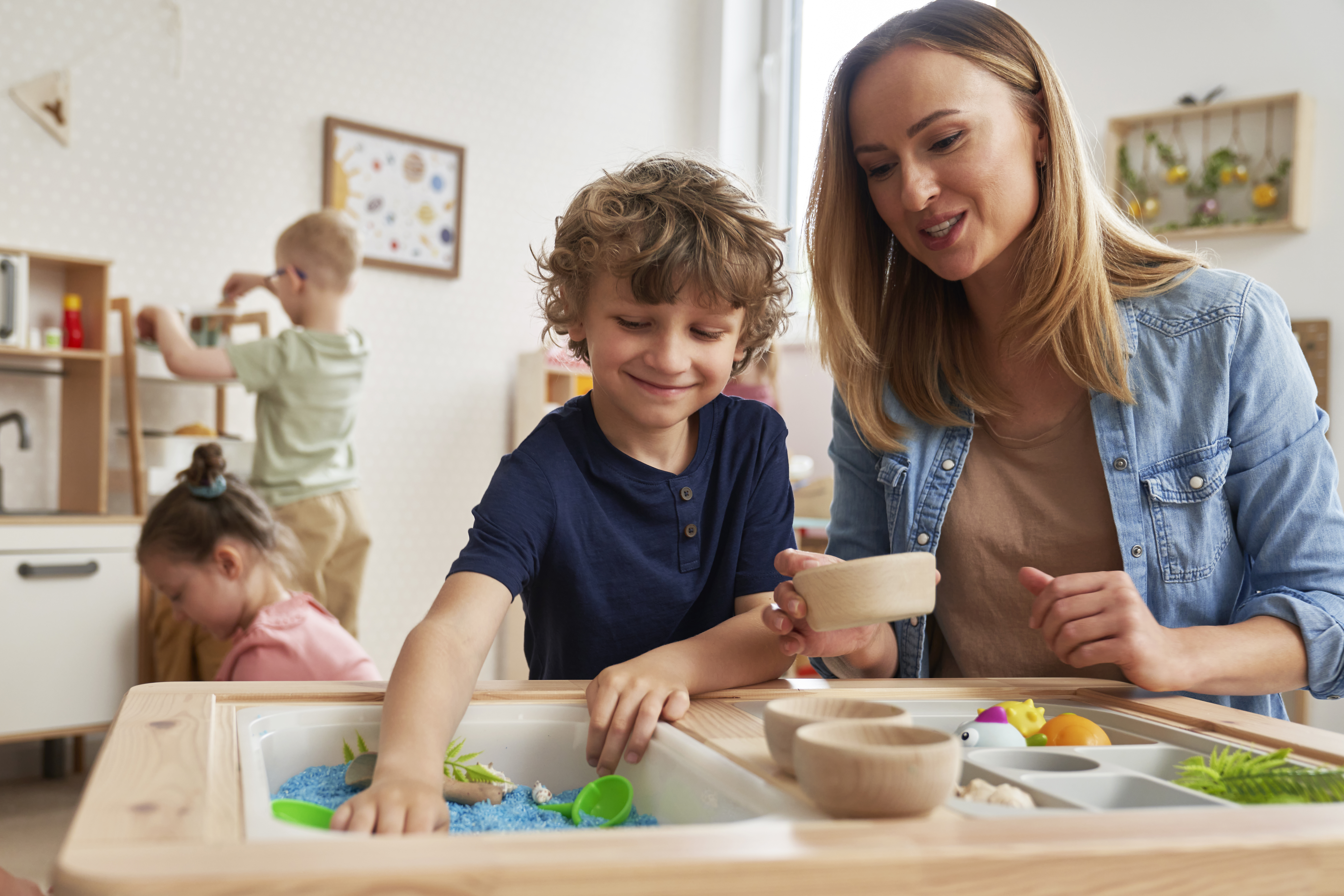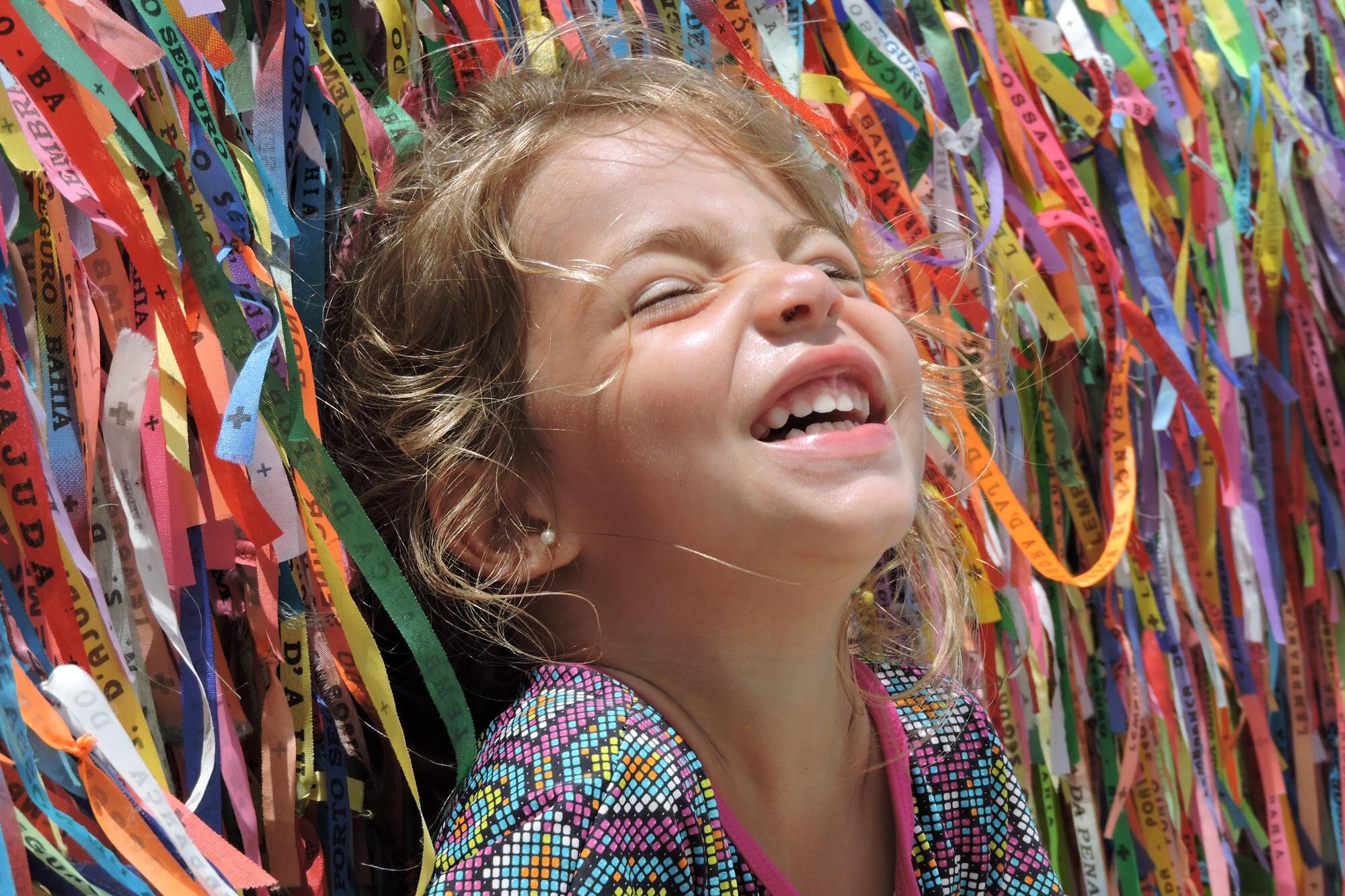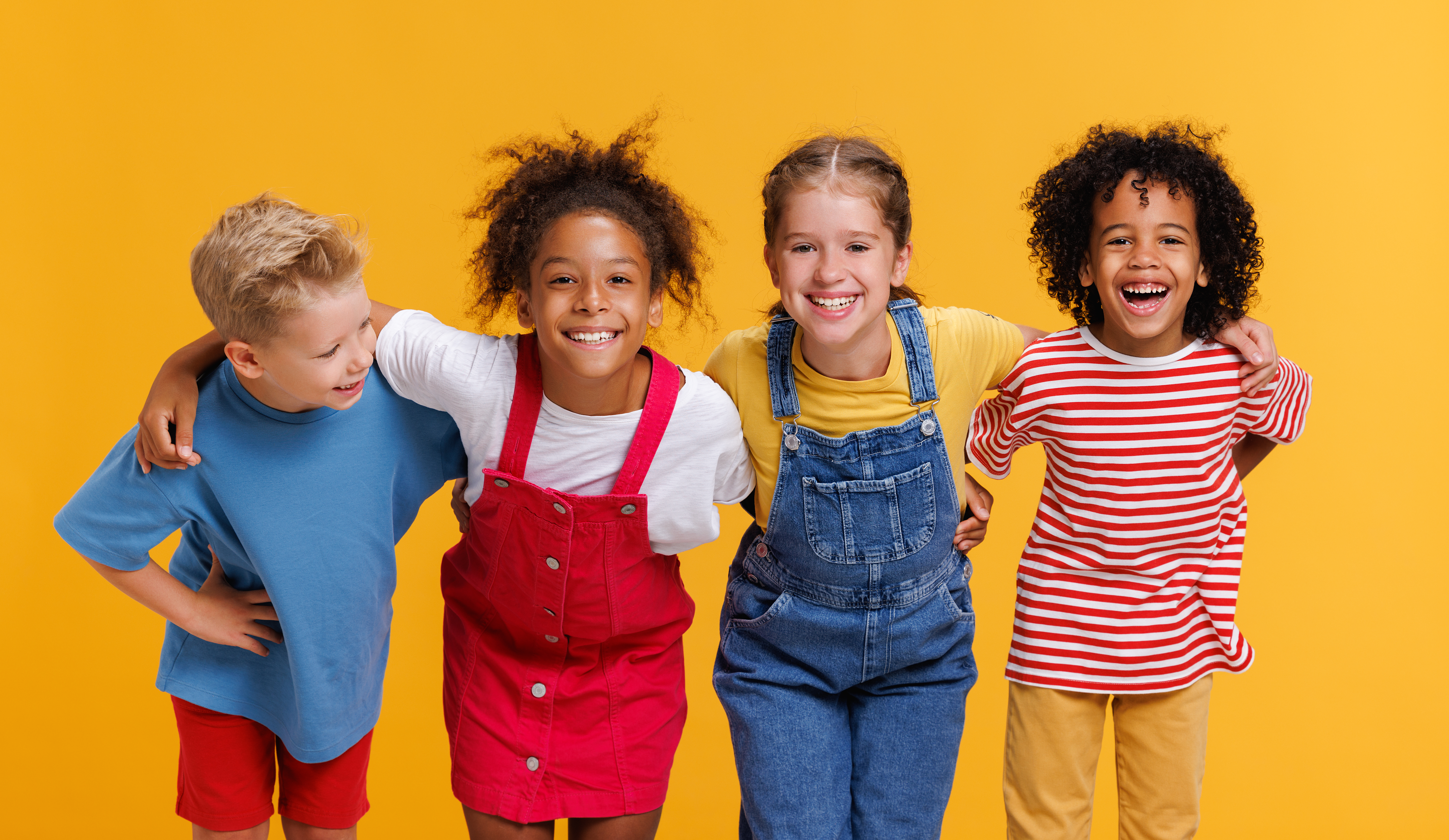We’re Going to London! (And You’re Getting an Exclusive First Look)
Can I let you in on a secret?
Luis and I have been working on something that started as a dream, became a conversation over dinner one night, and somehow turned into a book. Actually, our most exciting book yet.
Adrián, Guillermo and us are going to London. 🇬🇧
And before you ask: yes, this is based on a real trip. Because if you know us by now, you know that every single thing we write comes from our actual lived experience.
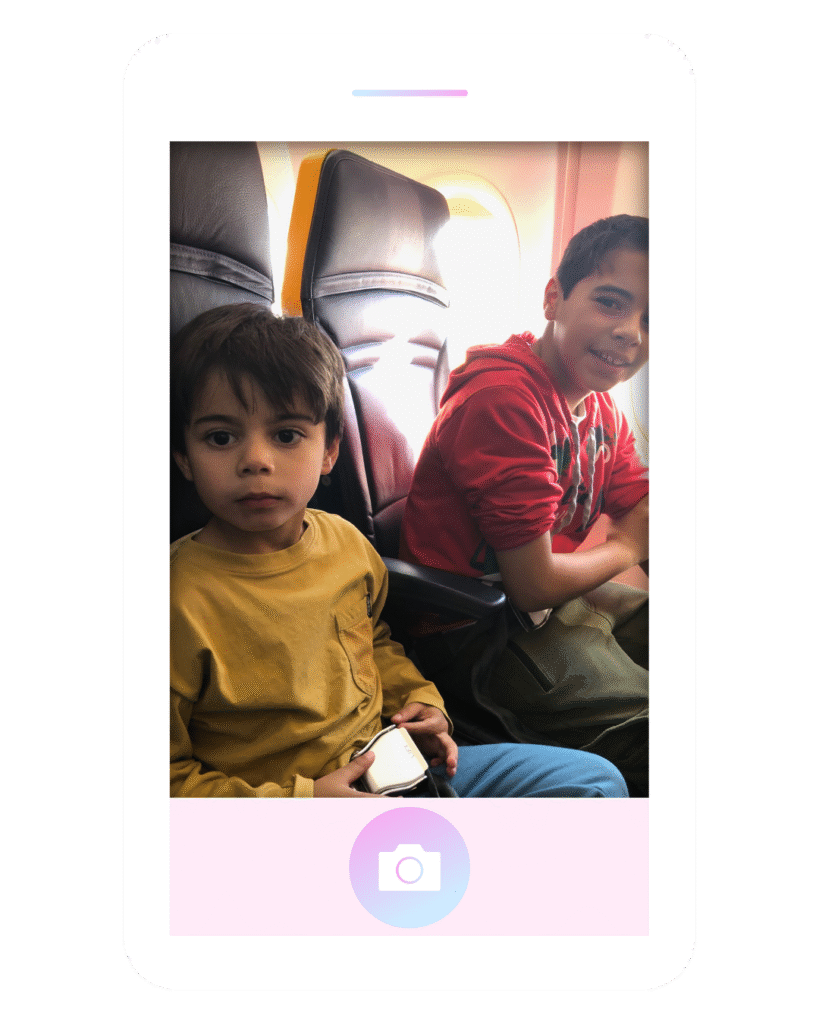
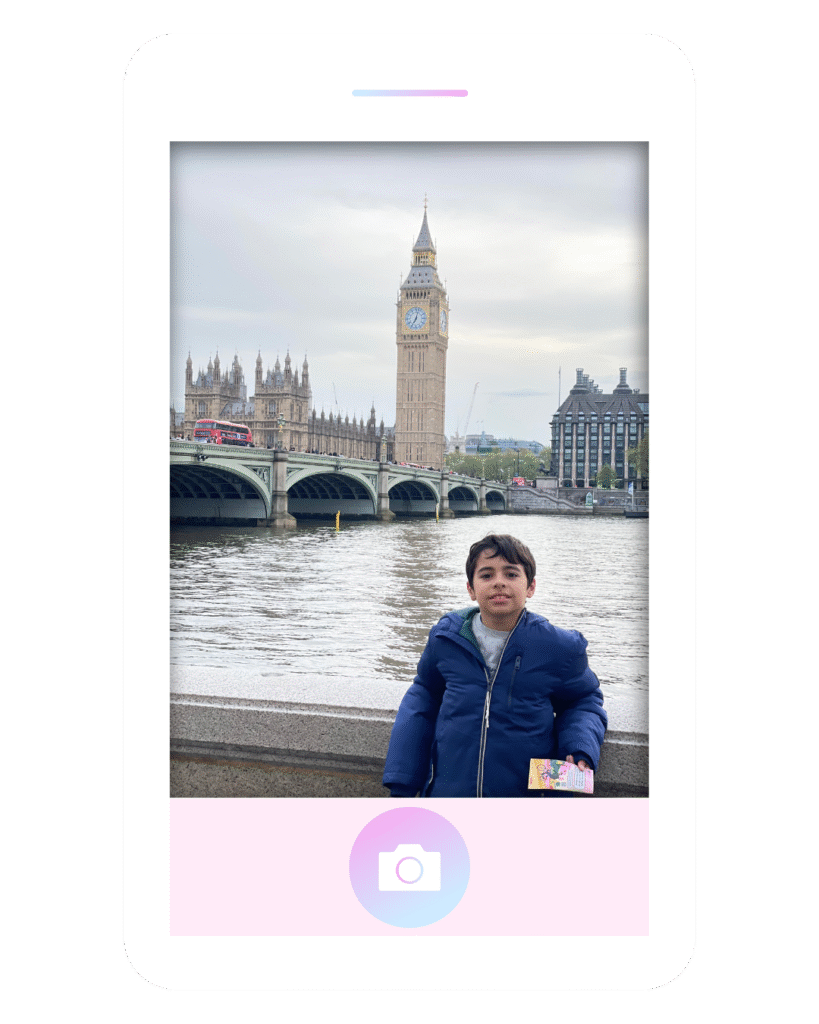

I’m so excited to share this sneak peek with you today, including a first look at one of our hand-drawn illustrations, because this book feels different. It feels like an adventure.
How This Book Was Born
When Luis and I started talking about travel. We talked about how desperately we wanted to take Adrián and Guillermo somewhere big, somewhere meaningful, somewhere with trains of course, somewhere that pushed all of us outside our comfort zones.
But here’s the thing about travel with autistic kids: it’s not just packing a suitcase and booking flights. It’s research and preparation and social stories and sensory kits and backup plans for your backup plans. It’s having conversations weeks in advance about what airports feel like, what hotel rooms smell like, what happens if the food is different, what to do when everything is overwhelming and you’re thousands of miles from home.
It’s a whole thing.
And we couldn’t find a single children’s book that honestly, authentically, helpfully addressed what travel looks like for autistic families. So once again, we decided to write it ourselves.
What This Book Is About
Join Adrián and the Family on a Trip to London follows our family on a real adventure, from the anticipation and preparation at home all the way through the streets of London.
But this isn’t a tourist book. It’s not a “here are all the famous landmarks” book. It’s an autism family travel book.
It’s about:
✨ The preparation that makes travel possible – How we prepare Adrián and Guillermo weeks before departure. The visual schedules, the social stories, the conversations about what to expect.
✨ The airport experience – Let’s be honest: airports are sensory overload central. Crowds, noise, bright lights, security lines, delayed announcements, waiting. We show how Adrián navigates it and what helps.
✨ The unexpected moments – Because no matter how much you prepare, things happen. Flights get delayed. Plans change. Sensory overwhelm hits at the worst times. This book shows the real, messy middle of those moments, and how we get through them together.
✨ The joy of discovery – Because travel IS magical, even when it’s hard. Adrián’s passion for history and trains? London was made for him. Seeing his face at the Tower of London, at Buckingham Palace, the Postal Museum, at the London Transport Museum – that’s in this book too.
✨ Practical strategies woven through the story – Just like our other books, this isn’t just a story. It’s a tool. Parents will find strategies and tips throughout that they can actually use on their own family adventures.
Why London?
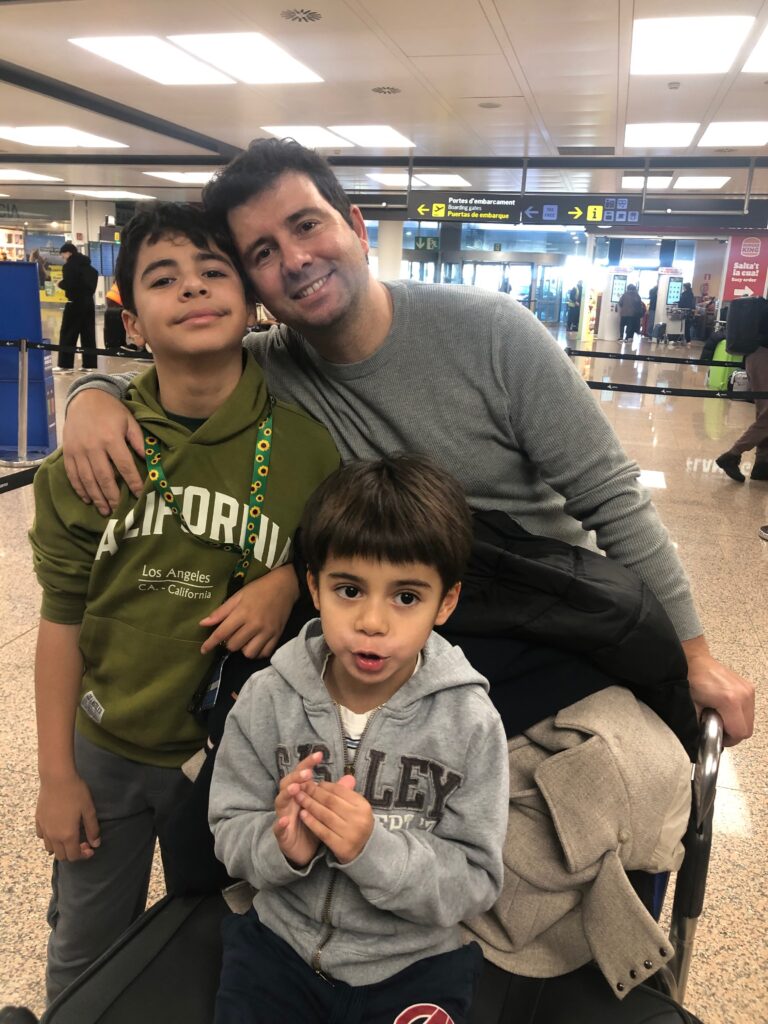
Okay, so why London specifically? Several reasons.
First: Adrián is obsessed with history – Roman history, medieval history, Tudor history. London is basically a living museum of everything he loves. It felt like the perfect destination for a boy who can tell you exactly which Tower of London prisoner was beheaded in which year.
Second: Adrián is a map whiz, and before even visiting the places in person, he had explored all the streets of London through Google Maps and knew the Underground by heart.
Third: We actually WENT to London as a family. So everything in this book – every detail, every challenge, every beautiful moment – is real.
And honestly? There were tears. There were hard moments. There were times I questioned whether we should have stayed home. But there were also moments of pure, absolute joy that I will carry in my heart forever.
Like the moment Adrián stood in front of the London eye and went completely still – not overwhelmed, but awestruck. That moment is in the book.
The Part That Makes This Book Different: Our Illustrations
Before I show you the sneak peek image, I want to talk about something that matters deeply to us.
Every single illustration in our books is hand-drawn by our illustrator, Edgar. Not AI. Not stock images. Not digitally generated. Hand. Drawn.
In a world where AI-generated images are everywhere, and where it can be genuinely hard to tell the difference, we want to be completely transparent: our illustrations are created the old-fashioned way, with real artistic skill, real time, and real human creativity.
Why does this matter? Because the illustrations in our books aren’t just pretty pictures. They’re emotional storytelling. They capture the nuanced expressions of an overwhelmed child, the specific body language of a child who’s masking, the sensory details of a crowded airport, the wonder on a child’s face seeing something breathtaking for the first time.
You can’t replicate that authenticity with AI. You can generate technically accurate images, but you can’t generate the love and understanding that goes into every line our illustrator draws. And when autistic children see themselves in these illustrations, when they recognize their own expressions, their own postures, their own experiences, that recognition comes from art created by a human who deeply understands what we’re trying to convey.
Every page is drawn with intention. Every expression is considered. Every detail is meaningful. And we wouldn’t have it any other way.
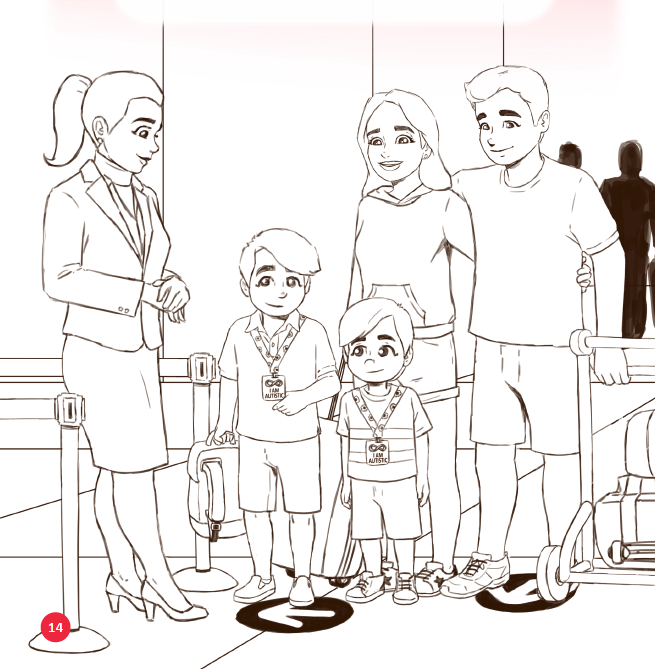
Isn’t it beautiful? This is the kind of art that tells a story before you even read a word.
What to Expect From This Book (Different From Our Others)
This book expands our series in a new direction, and we’re so excited about it.
Our previous books focused on:
- Meltdowns and emotional regulation (Autism: Calming the Chaos)
- Self-esteem and confidence (Autism: Confidence Starts Here)
- School transitions (Autism: A New School Year)
- Masking and emotional overload (Autism: My Invisible Backpack)
- Social events (Autism: This is How I Party)
This book focuses on: Travel, adventure, and experiencing the world as an autistic family.
Because autistic kids deserve adventures too. They deserve to see themselves in travel stories. They deserve books that say: “Yes, travel is hard for you AND it’s absolutely possible AND it’s worth it.”
And their families deserve practical support for making it happen.
The Strategies We’ll Cover (A Sneak Peek)
Without giving everything away, here are some of the strategies and themes woven through the story:
📋 Pre-trip preparation – How far in advance to start talking about travel, how to use social stories for airports and hotels, what to include in a travel sensory kit
✈️ Airport strategies – From check-in to boarding, how to make airports more manageable for sensory-sensitive kids
🏨 Hotel survival – New environments, new smells, new sounds, new beds. How we help our kids adjust to unfamiliar spaces
🗺️ Planning with flexibility – How to structure days so there’s predictability AND room for the unexpected
🎧 Non-negotiable tools – The sensory items we NEVER travel without (headphones, comfort items, familiar snacks)
💙 When things go wrong – Because they will. And that’s okay. This book shows HOW you get through the hard moments and come out the other side
🌟 Finding the joy – The magical moments that make it all worth it
When Is It Coming?
We’re still in the creation process, and I want to be honest with you about that. Writing a book is a labor of love that takes time. We want to get it RIGHT. We want the illustrations to be beautiful and authentic. We want the strategies to actually help. We want Adrián’s voice to shine through every page.
What I can tell you: We’re working hard on it right now. The illustrations are in progress (as you can see from today’s sneak peek). And when it’s ready, you’ll be the first to know.
If you want to be notified the moment it launches, make sure you’re subscribed to our newsletter. We’ll be sharing more behind-the-scenes peeks, exclusive previews, and all the details before anyone else.
While You Wait: Our Current Series
If you haven’t explored our existing books yet, these are the perfect companions while you wait for the London adventure:
📚 Autism: This is How I Party – The perfect introduction to navigating social events with autistic kids. Great prep for any outing, including travel.
📚 Autism: Calming the Chaos – Essential for understanding and supporting meltdowns, which let’s be honest, can happen during travel.
📚 Autism: A New School Year – The transition and preparation strategies in this book apply beautifully to travel preparation too.
📚 Autism: My Invisible Backpack – Understanding masking and emotional overload is crucial for travel. Highly recommend reading this before any big trip.
And don’t forget our FREE travel guide: Traveling with Autistic Kids: A Practical Guide, already available for download right now.
A Note to This Community
When Luis and I started Loving Pieces Books, we had no idea it would become what it is. We just knew our boys deserved to see themselves in stories. And then we realized: YOUR kids deserve that too.
With every book we write, we try to go somewhere new – a new challenge, a new experience, a new aspect of autistic life that isn’t represented enough.
Travel is that space. Autistic families travel. Autistic kids want adventures. The world is worth seeing, and our children deserve books that tell them so.
We can’t wait to share this journey with you. The London book is coming. And we think it’s going to be something really special.
Stay tuned.
With excitement and love,
Dalisse & Luis (and Adrián & Guillermo, our co-adventurers)
Loving Pieces Books
📧 Stay Connected:
- Subscribe to our newsletter for exclusive sneak peeks: lovingpiecesbooks.com
- Instagram: @lovingpiecesbooks for behind-the-scenes
- Free Resources: lovingpiecesbooks.com/freebies including our Traveling with Autistic Kids guide
Are you planning any trips with your autistic child? What’s your biggest travel challenge? Share below – your questions might end up informing this book! We want it to be as helpful as possible for families like yours.

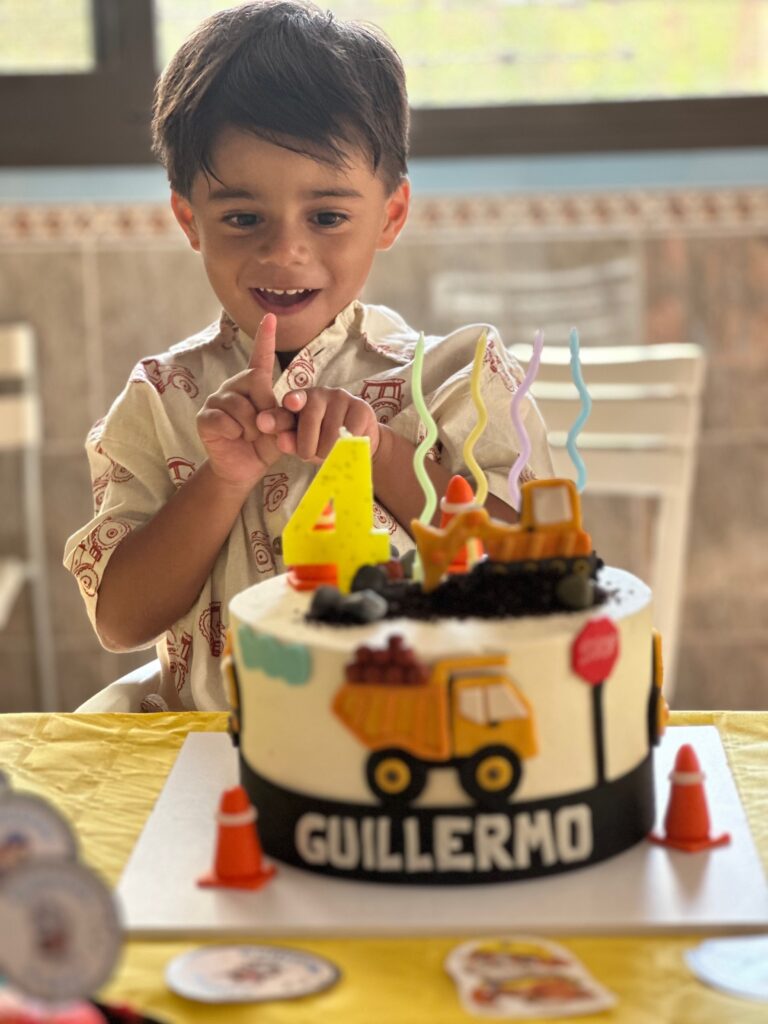


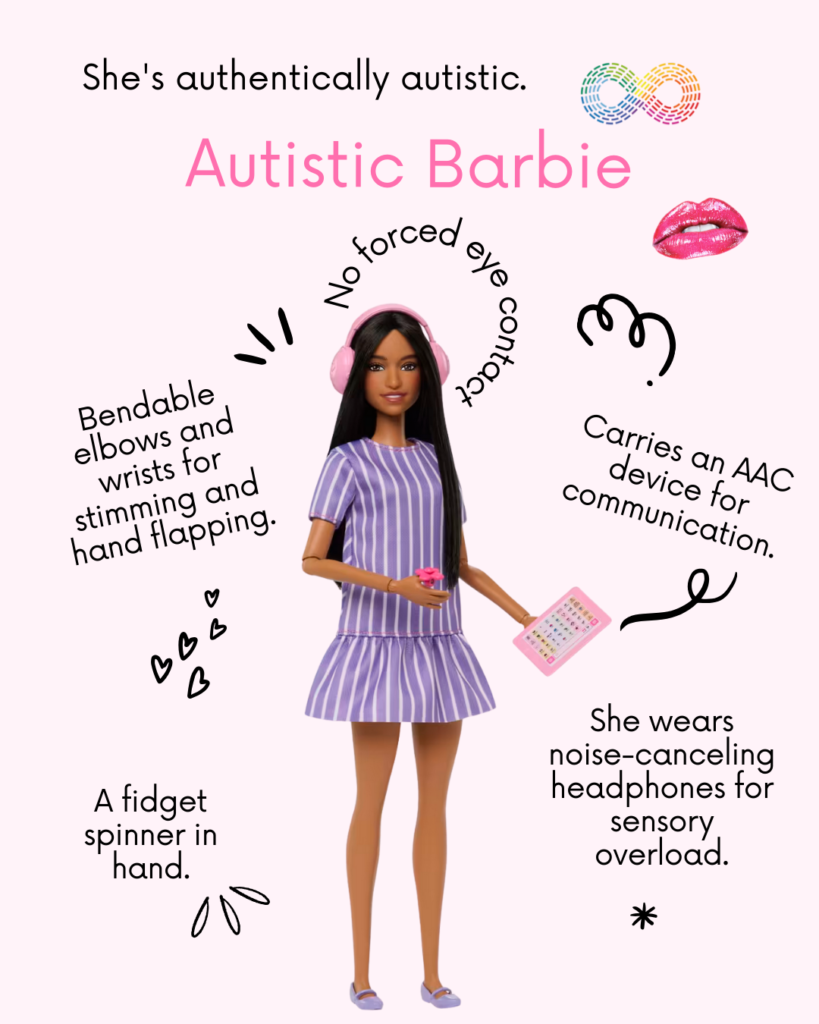
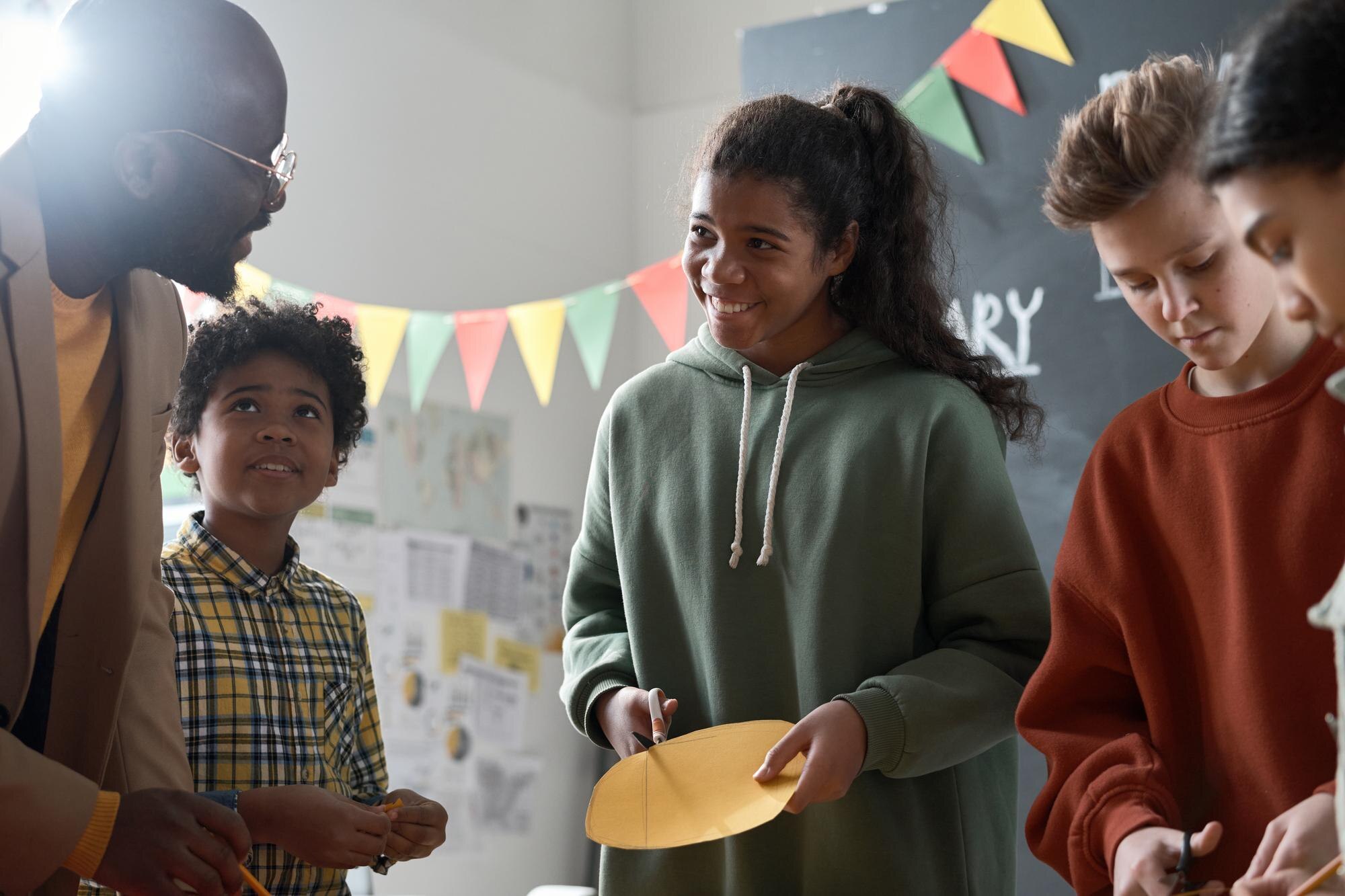 We’ve all heard the stereotypes. The math whiz with no social skills. The nonverbal child in their own world. The “low-functioning” versus “high-functioning” binary that tells us nothing about who a person actually is.
We’ve all heard the stereotypes. The math whiz with no social skills. The nonverbal child in their own world. The “low-functioning” versus “high-functioning” binary that tells us nothing about who a person actually is. I love the metaphor of a neurodiverse garden. In our dream garden, you wouldn’t get mad at an orchid for not being a sunflower. You’d learn what the orchid needs, more humidity, indirect light, a specific kind of care, and you’d be rewarded with a breathtaking, unique bloom.
I love the metaphor of a neurodiverse garden. In our dream garden, you wouldn’t get mad at an orchid for not being a sunflower. You’d learn what the orchid needs, more humidity, indirect light, a specific kind of care, and you’d be rewarded with a breathtaking, unique bloom.